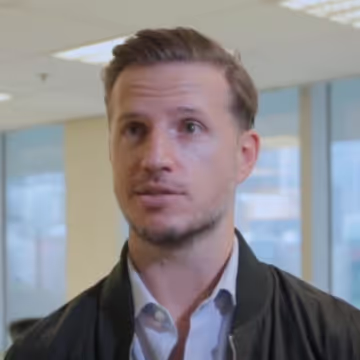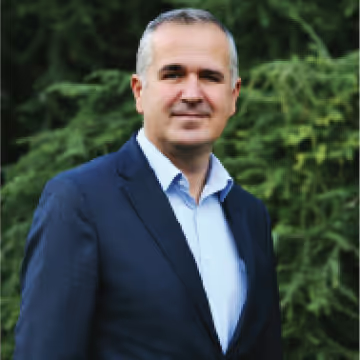Did you know that many golden visa routes require only a few days’ presence each year yet open up visa-free travel across the Schengen Area for short stays?
We are Marlow Bray, a private advisory for high-net-worth families assist our clients throughed carefully considered options for investment residence, aligning mobility with tax and succession goals, and managing discreet and personalised applications.
Our approach focuses on practical comparisons: which routes issue decisions fastest, which grant lifelong status from day one, and which balance low presence rules with solid legal footing.
Processing times vary — some programmes issue permits in about three to four months, while others take closer to a year. We streamline due diligence and structure assets to avoid delays and protect legacy plans.
Key Takeaways
- Golden visa routes can offer residency with minimal annual presence and Schengen access for up to 90/180 days.
- Residency processing times typically range from ~3 months to ~12 months depending on the programme.
- Decisions hinge on investment thresholds, asset types, and presence requirements.
- We provide discreet, tailored advice covering selection, structuring and application support.
- Understanding temporary versus permanent residence early shapes exit and succession strategies.
Why Investors Are Considering European Residency
HNW families are increasingly viewing European residency as a key part of their wealth and mobility planning. Residency within the EU provides easier access to European markets and visa-free travel within the Schengen Area for up to 90 days in any 180-day period. For business leaders, it removes visa friction and enables smoother movement between meetings, schools, and family bases.
Global Mobility, Diversification, and Legacy Priorities
Residency supports international mobility while helping families diversify assets and currency exposure. Many European programmes have reduced stay requirements and offer flexible pathways that fit around Singapore-based family schedules. We help clients choose routes that balance investment, fund access, and long-term estate planning.
How Marlow Bray Delivers Discreet and Personalised Advice
Our approach begins with confidential risk screening and clear understanding of each family’s objectives. We manage applications end-to-end, covering structuring, compliance, and cross-border coordination. We also consider the tax implications of residency and special regimes that may apply to high-net-worth individuals.
How to Use This Guide
Selecting the right residency starts with comparing speed, cost, and compliance demands. We guide clients through shortlisting, due diligence, and application delivery—ensuring every stage remains discreet, efficient, and aligned with legacy goals.
Decision Factors: Investment Size, Processing Time, Presence Rules, Exit Options
We shortlist routes based on minimum investment, liquidity needs, and asset suitability. Typical processing times range from around four months for Greece and Italy, three to six months for Latvia, six months for Malta, nine months for Cyprus, and up to twelve months for Portugal. We also assess how presence requirements fit family routines and travel schedules, and we evaluate exit risks such as resale limitations or early redemption conditions.
Aligning Residency with Tax, Estate, and Succession Planning
Each residency investment is aligned with existing governance, trust, and company structures. This ensures that capital commitments map to long-term estate goals and remain compliant with reporting obligations. Our focus is on balancing speed, cost, and sustainability so the chosen residency strengthens both mobility and legacy.
Top European Residency by Investment Programmes at a Glance
We provide clear comparisons of processing times, presence requirements, investment thresholds, and renewal cycles across Europe’s main routes. Our advisory team handles all applications discreetly and efficiently for Singaporean families.
Processing Speeds and Physical Presence Requirements
Greece and Italy typically process applications within four months, Latvia within three to six, Malta within six, Cyprus around nine, and Portugal within twelve. Greece and Malta have minimal stay requirements, Portugal requires roughly seven days per year, Latvia needs one annual visit for biometrics, and Cyprus typically asks for one visit every two years.
Minimum Investments and Qualifying Routes
European programmes offer qualifying routes through real estate, regulated funds, company shares, government bonds, or donations. Validity ranges from two- to five-year renewable permits, with some leading to permanent or lifetime residency. We map each route’s cost, duration, and pathway to citizenship to suit family timelines.
Greece Golden Visa
Greece offers one of the fastest routes to Schengen mobility and portfolio diversification. Qualifying investments include real estate from €250,000 to €800,000, fund units from €350,000, or a €500,000 bank deposit. Processing averages four months, with minimal stay obligations. The five-year renewable permit includes spouse, unmarried children under 21, and parents. Permanent residency follows five years of residence; citizenship generally after seven. We help investors compare property yields against fund or deposit efficiency for speed and simplicity.
Portugal Golden Visa
Portugal remains popular for its five-year path to citizenship and minimal seven-day annual stay requirement. Eligible investments include arts and culture (€250,000), research (€500,000), regulated funds (€500,000), company equity with job creation (€500,000 plus five jobs), or job creation alone (ten jobs). Processing can take up to a year. Citizenship requires A2 Portuguese language proficiency. We often recommend the fund route for predictable exits and liquidity, and we build conservative timelines to accommodate legislative updates expected in 2025.
Italy Investor Visa
Italy’s investor visa provides strategic EU access with flexible asset classes. Qualifying options include €250,000 for startups, €500,000 for company shares, €1,000,000 as donation, or €2,000,000 in government bonds. The permit is valid for two years, renewable for three, and can lead to permanent residence after five years and citizenship after ten. We tailor each case to the client’s risk tolerance, including Italy’s €200,000 flat tax regime for newcomers.
Hungary Guest Investor Programme
Hungary offers a ten-year renewable residence permit with a quick path to permanent residence. Investors may choose between €250,000 in real estate fund units or a €1,000,000 donation to a higher-education institution. The process starts with a six-month visa, followed by on-site investment and permit application. There is no ongoing presence requirement. Adult children aged 18–25 qualify under specific terms if dependent students. Citizenship may follow after roughly eleven years in total.
Latvia Golden Visa
Latvia’s options include €50,000 company equity, €250,000 property near Riga, or a €280,000 fixed-term bank deposit. Real estate and deposits close faster due to standard documentation. Processing takes three to six months, and the permit is valid for five years. Applicants must visit once a year for biometrics. Family coverage includes spouse and children under 18. After five years, permanent residence becomes available, with citizenship after ten. We ensure investments and property management align with long-term mobility plans.
Malta Permanent Residence Programme
Malta’s MPRP provides lifetime residency from day one. Minimum investment ranges from €169,000 (rental route) to €474,000 (property purchase). Applicants must show total assets of €500,000–€650,000, with defined liquidity thresholds. There is no residency requirement, and cards renew every five years. Family inclusion covers spouse, dependent children up to 29, and parents or grandparents. We manage asset proof, compliance, and renewal filings to maintain status and optimise multigenerational applications.
Cyprus Permanent Residence
Cyprus offers lifelong residency through a €300,000 investment in residential or commercial property, company shares, or local funds. Applicants must show annual income of €50,000 plus €15,000 for a spouse and €10,000 per child. Residency is granted for life and renewed every ten years, requiring one visit every two years. Citizenship is possible after eight years. We help families document lawful income, choose qualifying assets, and align Cyprus residence with broader EU access and estate planning.
Processing Time and Due Diligence
Fast outcomes depend on complete documentation and clean compliance records. Straightforward fund or deposit routes often move faster than complex corporate or property cases. We focus on preparing strong source-of-funds files and liaising with authorities to reduce delays.
Balancing Speed with Long-Term Goals
Quick approvals mean little without sustainable exit strategies. Some investments require multi-year lock-ups. We help clients balance speed, liquidity, and estate continuity to secure compliant, long-term results.
Investment Options and Liquidity
Real estate offers tangible yield and collateral—up to 10% in Greece or 4–6% in Cyprus—but must be held for the required duration. Funds provide diversification and professional management, with typical holding periods of five to twelve years. Deposits and government instruments are low-risk anchors; donations are fast but non-recoverable.
Family Planning and Dependants
Eligibility varies. Greece and Malta include parents, and Malta extends to grandparents. Portugal allows dependent students up to 26 and parents aged 65+. Hungary and Cyprus cover older dependent children under certain terms. We design applications to maximise coverage while anticipating changes as children reach adulthood.
Tax, Presence, and Business Considerations for Singapore Residents
European residency can enhance mobility while maintaining Singapore tax efficiency. Presence days are monitored to avoid triggering EU tax residence under 183-day rules. We coordinate with local tax counsel to manage filings, structures, and substance requirements. Greece, Italy, and Portugal each offer favourable flat tax regimes for new residents, and corporate rates across key countries remain competitive—Hungary 9%, Cyprus 12.5%, Malta nominally 35% with rebate mechanisms.
Why Partner with Marlow Bray
We manage every aspect of the residency process—evaluation, structuring, investment, and application—with a single point of accountability. Our team works alongside trusted legal and tax partners to deliver compliant, efficient, and confidential outcomes. Each client benefits from ongoing support covering renewals, presence tracking, and transitions to permanent residence or citizenship.
Conclusion
A well-structured residency plan connects investment, travel, and succession goals. We help Singaporean families identify the most suitable programmes—such as Portugal’s Golden Visa or Hungary’s Guest Investor route—while managing all compliance and legacy factors. The result is a secure, sustainable path to European mobility, tax efficiency, and multigenerational wealth protection.
FAQ
What is the difference between a golden visa, investor visa and permanent residence?
A golden visa or investor visa is a temporary residence permit granted in return for a qualifying investment, often with streamlined processing. Permanent residence (PR) grants indefinite residency rights and generally requires a period of legal residence, compliance with renewals, and in some cases a minimum physical presence. Some programmes (for example Malta’s Permanent Residence Programme and Cyprus PR options) offer direct long-term status, while others (Portugal, Italy, Greece) start with temporary permits that lead to PR after meeting time and presence rules.
Which countries in Europe offer the quickest route to long-term residency or PR?
Speed depends on the route chosen and documentation quality. Greece and Hungary’s Guest Investor pathway are often among the fastest for issuance of initial permits. Malta’s PR can be effectively immediate once approvals and payments clear. Processing time also varies by investment type — real estate, fund units or government bonds — and by applicant background due diligence.
How much do we typically need to invest to qualify?
Minimum investment thresholds vary widely. Greece and Latvia have relatively low real estate thresholds. Portugal’s fund, research, and job creation options typically start higher but allow non-real-estate routes. Italy and Malta offer multiple options including donations, government bonds and funds with different minimums. We recommend a tailored review to match budget, liquidity needs and exit flexibility.
Do we have to live in the country to keep the visa or progress to citizenship?
Physical presence rules differ. Greece and some Latvian residency routes have little or no mandatory stay for the permit, while Portugal requires minimal residency presence for renewals and a seven-day annual visit for naturalisation pathways. Citizenship usually demands longer continuous residence and may require language proficiency (for example Portugal’s A2 requirement). Always confirm presence rules tied to the pathway you select.
Can family members be included on the application?
Most programmes allow inclusion of spouses and dependent children. Several also permit dependent parents or adult children under specific conditions (Hungary and Malta have defined family scopes). Rules on age limits, financial dependence and biometric requirements vary, so we advise early family eligibility checks to avoid surprises.
What are the common investment options and how do they affect flexibility?
Common routes include direct real estate purchases, investment funds, bank deposits, government bonds and donations or corporate equity. Real estate ties capital but can appreciate; funds offer professional management and liquidity varies; bonds and deposits tend to be lower risk but lower return. Donation routes can be fastest but irreversible. The chosen instrument affects renewal, exit timing and tax planning.
How does due diligence affect processing time and outcomes?
Due diligence is often the longest and most decisive phase. Thorough, well-documented applications with transparent source-of-funds evidence shorten agency reviews. Background checks, criminal record clearances and tax compliance reviews can add weeks. Rushing documentation increases the chance of queries or rejection, so we prioritise accuracy over speed while keeping timelines tight.
Is citizenship guaranteed after obtaining residency through investment?
No. Residency usually creates a pathway to citizenship but it is not automatic. Citizenship eligibility depends on continuous legal residence, language tests, clean records and any specific nationality law changes (for example proposed updates in Portugal)。 Some countries have mandatory residence years before naturalisation; others also require cultural or language assessments.
What are typical processing times from application to approval?
Processing times vary by country and route. Initial permits can be issued in a few weeks to a few months. Greece and some Latvian citizenship or residency routes are often on the shorter end; Malta and Cyprus official checks can be longer due to thorough compliance. Complex corporate investments or citizenship applications naturally take more time. We estimate and manage timelines per case to set realistic expectations.
How do residency programmes interact with tax residency and reporting?
Residency for immigration is separate from tax residency. Most countries set tax residency by number of days present or by centre-of-life tests. Some programmes offer tax-friendly regimes or flat tax options, but acquiring a permit can trigger filing obligations. We coordinate with tax advisers to structure presence, income sourcing and corporate set-up to manage liabilities for Singaporean-based investors.
Can we use a golden visa to travel freely across Schengen countries?
Yes — most EU golden visas that grant Schengen-area residence permits provide freedom of movement within the Schengen zone for short stays. However, the right to work or permanent relocation within other EU states is restricted and depends on local labour and immigration law. Schengen mobility is a practical benefit, but not equivalent to EU citizenship rights.
Are investment funds an acceptable qualifying route and what are the pros and cons?
Investment funds are widely accepted and increasingly popular. They provide diversification, professional management and usually quicker documentation than direct property. Downsides include management fees and variable liquidity. Funds also have holding periods that affect exit planning. We assess fund structures, lock-up periods and regulatory standing before recommending them.
What happens if we sell the qualifying investment before meeting the minimum hold period?
Selling before the mandated holding period can jeopardise permit renewals or future naturalisation. Some programmes enforce a fixed term; others impose penalties or require substitute investments. We design exit strategies up front to ensure compliance with holding rules and to protect residency status.
How do programme changes or nationality law reform affect applicants?
Governments occasionally revise eligibility, minimums or naturalisation rules. Proposed changes — such as the 2025 nationality law updates discussed for Portugal — can affect timelines and requirements. Existing approvals generally remain valid, but new applicants face the updated rules. We monitor legislative developments and advise accordingly to mitigate risk.
What level of language proficiency is typically required for naturalisation?
Many countries require basic language ability for naturalisation. Portugal, for instance, uses an A2 proficiency level. Italy and others also require language proofs at specified levels. Temporary permits rarely demand language skills; requirements usually surface when applying for citizenship.
Can dependent parents and adult children be included across programmes?
Inclusion of dependent parents and adult children varies. Several schemes allow parents if financially dependent; Hungary and Malta offer specific provisions for extended family. Age limits, proof of dependence and health coverage are commonly scrutinised, so early documentation of dependency is essential.
What are common exit strategies and resale considerations for real estate-based routes?
Exit strategies include rental income, resale after minimum holding periods, or refinancing. Property market liquidity, taxes on capital gains and local transaction costs are key factors. Some countries allow substitute investments if immediate sale is necessary. We build scenarios to balance residency requirements with market realities.
How do we begin the application process with advisory support?
Start with an eligibility review covering family composition, budget, tax position and long-term goals. We then advise on optimal routes, conduct pre-due-diligence checks, prepare documentation and manage submissions to authorities. Our approach integrates legal, tax and succession planning to deliver a coordinated application strategy.























